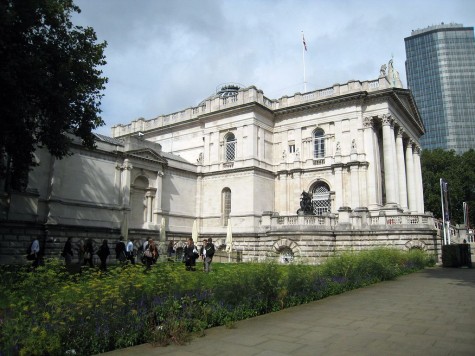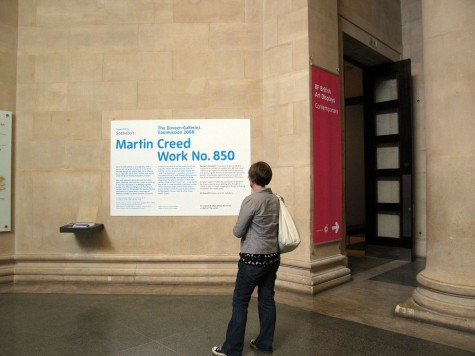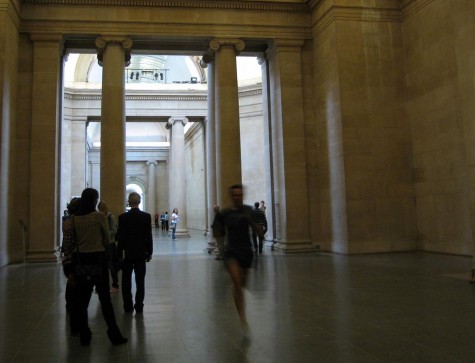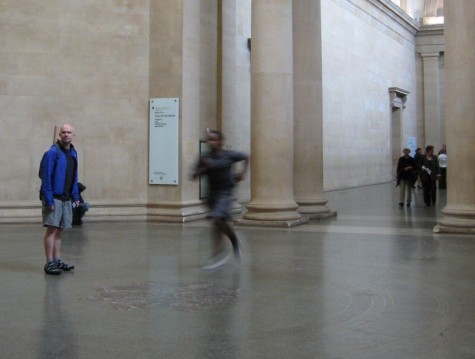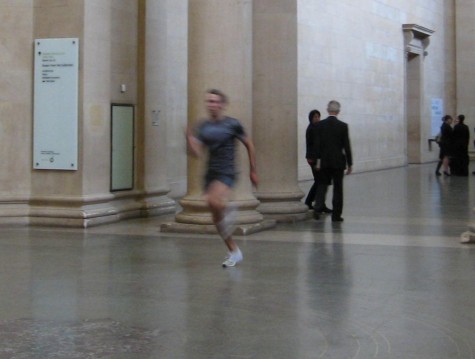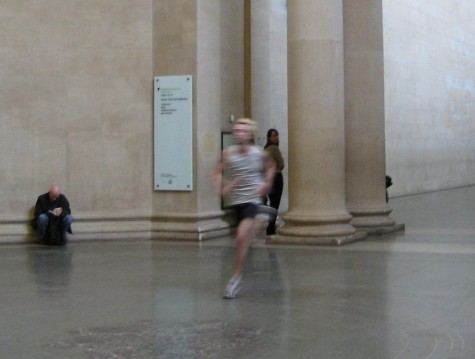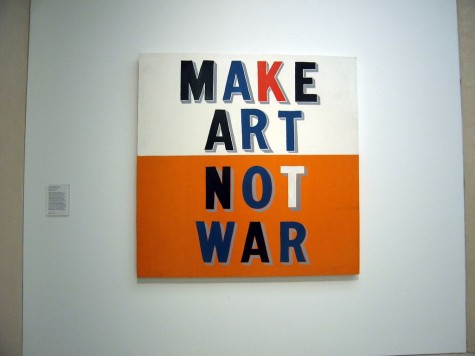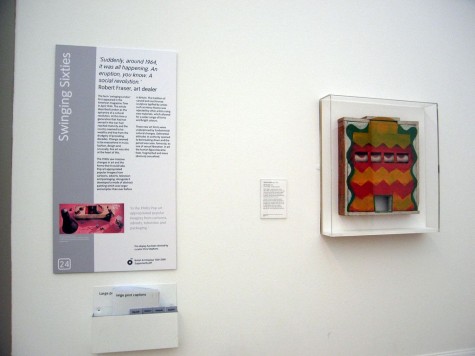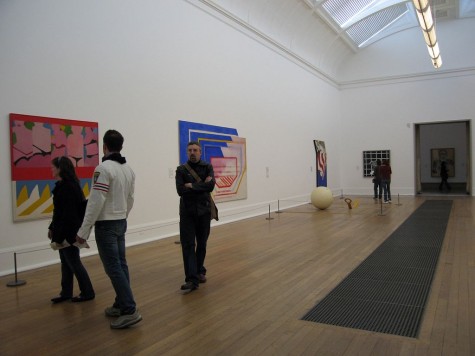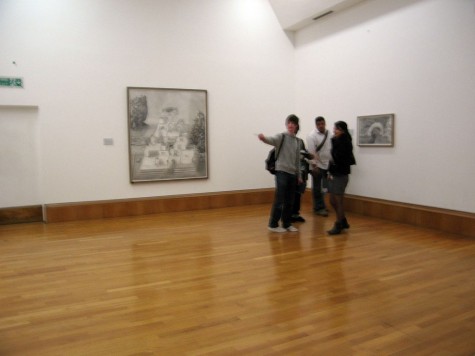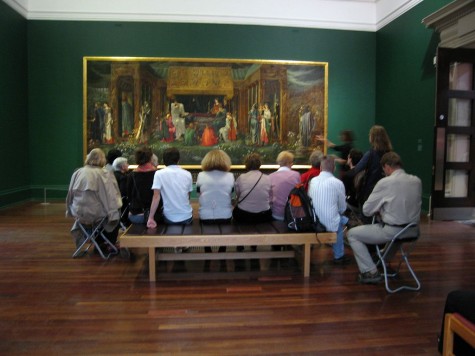I had read about “Art with Legs” in the Toronto Globe and Mail, so I was looking forward to Work No. 850, by Martin Creed.
The sign reads:
Work No. 850 centres on a simple idea: that a person will run as fast as they can through the gallery. Each run is followed by an equivalent pause, like a musical rest, during which the grand Neoclassical gallery is empty.
This work celebrates physicality and the human spirit. Creed has instructed the runners to sprint as if their lives depended on it.
So, I wasn’t surprised to see a runner dashing down the long hall.
I moved over to the side, and a few minutes later, a different runner came through the hall.
Unperceptive visitors are dodged, and sometimes surprised.
The runners rotate in sequence. Observers wait for runners to return.
I walked to the end where the runners start, for a full motion view.
On that same floor was the “Make Art Not War” 1997 painting by Bob And Roberta Smith, whom I’ve discovered as a pseudonym for contemporary artist Patrick Brill.
One of the themes on this visit was the Swinging Sixties.
The gallery has works well spaced, with natural skylights … and nice floors.
Students gather in the galleries to discuss the works.
The more serious visitors join a guided tour … and were welcomed to sit down during the commentary.
Tate Britain shows British art from the 1500s to the present day. I prefer the contemporary works, and focused my wanderings to see those.

